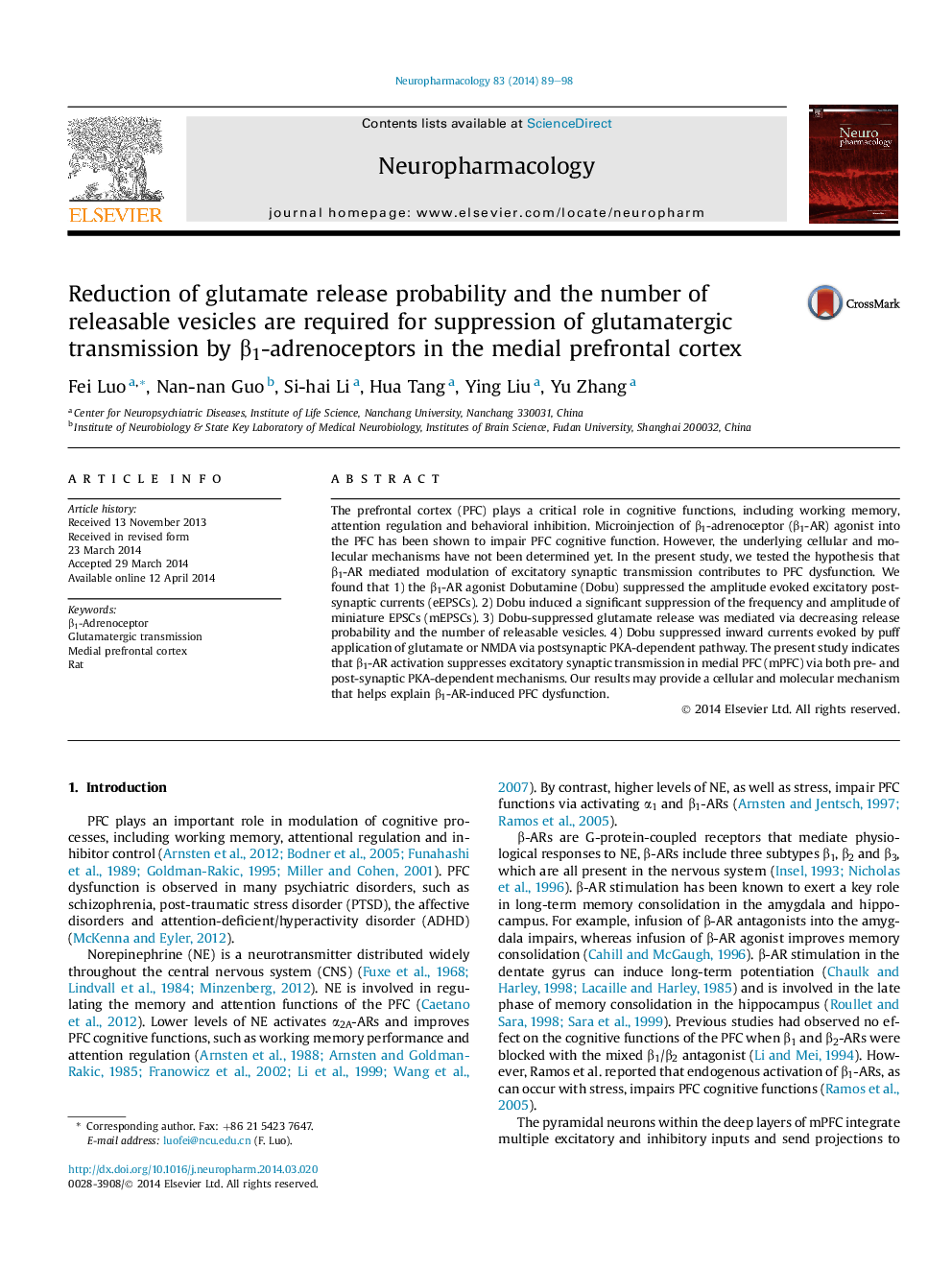| Article ID | Journal | Published Year | Pages | File Type |
|---|---|---|---|---|
| 2493201 | Neuropharmacology | 2014 | 10 Pages |
The prefrontal cortex (PFC) plays a critical role in cognitive functions, including working memory, attention regulation and behavioral inhibition. Microinjection of β1-adrenoceptor (β1-AR) agonist into the PFC has been shown to impair PFC cognitive function. However, the underlying cellular and molecular mechanisms have not been determined yet. In the present study, we tested the hypothesis that β1-AR mediated modulation of excitatory synaptic transmission contributes to PFC dysfunction. We found that 1) the β1-AR agonist Dobutamine (Dobu) suppressed the amplitude evoked excitatory postsynaptic currents (eEPSCs). 2) Dobu induced a significant suppression of the frequency and amplitude of miniature EPSCs (mEPSCs). 3) Dobu-suppressed glutamate release was mediated via decreasing release probability and the number of releasable vesicles. 4) Dobu suppressed inward currents evoked by puff application of glutamate or NMDA via postsynaptic PKA-dependent pathway. The present study indicates that β1-AR activation suppresses excitatory synaptic transmission in medial PFC (mPFC) via both pre- and post-synaptic PKA-dependent mechanisms. Our results may provide a cellular and molecular mechanism that helps explain β1-AR-induced PFC dysfunction.
